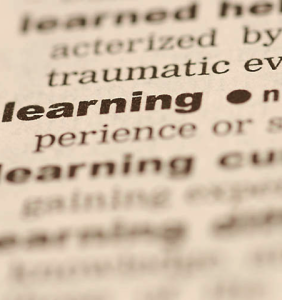 I’ve been advising Elevator 9 on learning science. Now, while I advise companies via consulting, this is a different picture. For one, they’re keen to bake learning science into the core, which is rare and (in my mind) valuable. It’s also a learning opportunity for me. I’m watching all the things a startup has to deal with that I’ve avoided (I didn’t get the entrepreneurial gene). It’s also turning out to have a really interesting revelation, which is worth exploring. I like continually learning, and this is just such an opportunity.
I’ve been advising Elevator 9 on learning science. Now, while I advise companies via consulting, this is a different picture. For one, they’re keen to bake learning science into the core, which is rare and (in my mind) valuable. It’s also a learning opportunity for me. I’m watching all the things a startup has to deal with that I’ve avoided (I didn’t get the entrepreneurial gene). It’s also turning out to have a really interesting revelation, which is worth exploring. I like continually learning, and this is just such an opportunity.
To start, I’ve advised lots of companies over the years. This includes on learning design, product design, market strategy, and more. Of course, with me you always get more than anticipated (like it or not ;), because I’ve eclectic interests. I also collect models, and when they match, you’ll hear about it. (To be fair, most clients have welcomed my additional insights; it’s an extra bonus of working with me! :) It’s also fun, since I also educate folks as I go along (“working with you is like going to graduate school”). Rarely, however, have I been locked into the development. I come in, give good advice, and get out. Here, it’s not the same.
I’m always a sponge, learning as well as sharing. Here, however, I’ve had involvement for a longer time; from their first no-code version and now serious platform development (in User Acceptance Testing phase, which means we’re about to launch; exciting!). From CEO David Grad, through COO Page Chen, and then all the folks that have been added from tech, to sales and marketing, UI, and more, I’ve been usually at least peripherally involved and exposed. It’s fascinating, and I’m really learning the depths that each element takes, and of course it’s far more than my naive ideas had initially conceived.
There are two major elements to their solution. One is wrapping extended reactivation around training events. The second is taking the collected data and making it available as evidence of the learning trajectory. My role is essentially in the first; for one, there are lots of nuances going into the quantity and spacing of learning. While there’s good guidance, we’re making our best principled decisions, and then we’ll refine through testing. I’m also guiding about what those reactivation activities should be. We are extending learning, not quite to the continual, but certainly to the necessary proficiency.
This is where it’s getting interesting. I realized the other day that most of what learning science talks about is formal learning: practice before performance. Yet, here, we’re actually moving into applying the learning into the workplace, and having learners look at the impact they’re having. In many ways, this looks more like coaching. That is, we’re covering the full trajectory. Which means we have to base principles beyond just formal learning. This is serious fun! Our data collection, as a consequence, goes beyond just the cognitive outcomes, but also looks at how the experience is developing.
Sure, there are tradeoffs. The market demands that we incorporate artificial intelligence, and they’re not immune to the advantages. We’re also finding that, pragmatically, the implications can get complex really fast, and that we have to make some simplifying assumptions. Of course, they’re also needing to develop a minimally viable product first, after which they’ll see what direction extensions go. It’s not the ideal I would envision, but it’s also a solution that’s going to really meet what’s needed.
So, I’m continually learning, and enjoying the journey. We’ll see, of course, if we can penetrate awareness with the solution, which should be viable, and also handle the general difficulties that bedevil many startups. Still, it’s a great opportunity for me to be involved in, and similarly it’s one that can address real organizational needs.
Leave a Reply